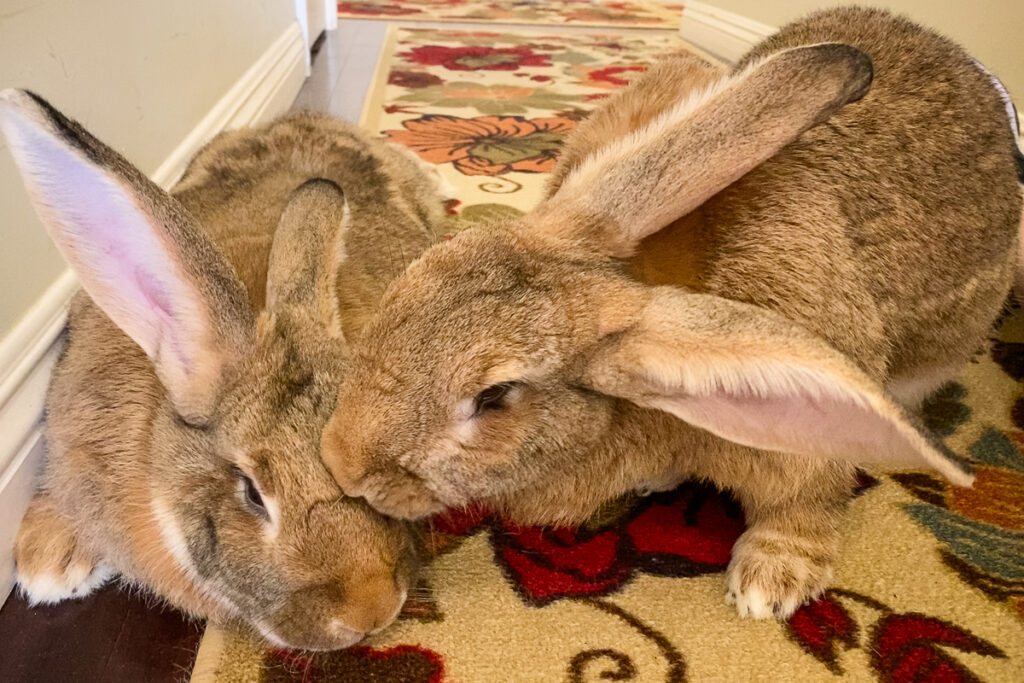A broken leg, a missing ear, partial paralysis from a puncture wound —these conditions are not what we associate with a contented house rabbit. Yet many fostered rabbits come to us with injuries, such as these, and if they survive infection and shock, they can make memorable pets.
Once the rabbit’s physical condition is stabilized, he often makes a full mental recovery. Unlike humans, distressed at the anticipation of lingering malady, rabbits whom we have observed seem to adjust and adapt to their new limitations with full mental vigor.
Trust strengthens the bond between human and rabbit. “If you didn’t kill me when I was helpless, you must be OK.“ Relationship based on trust can transform this previously miserable creature into a new type of animal —certainly not a glowing picture-perfect, show-quality specimen, but in a different way, something equally noble. A creature who has been “to hell and back “views life not as a routine but precious. Each bite of food, whiff of fresh air—or another rabbit seems to be felt intensely.
And if you have an animal, such as this, the intensity may spill over into your own life. You’ll almost certainly outlive this rabbit whom you work so hard to save. You will feel a loss. But you may also remember an enthusiasm for life in the face of adversity—a role model that may serve you well as a human.

